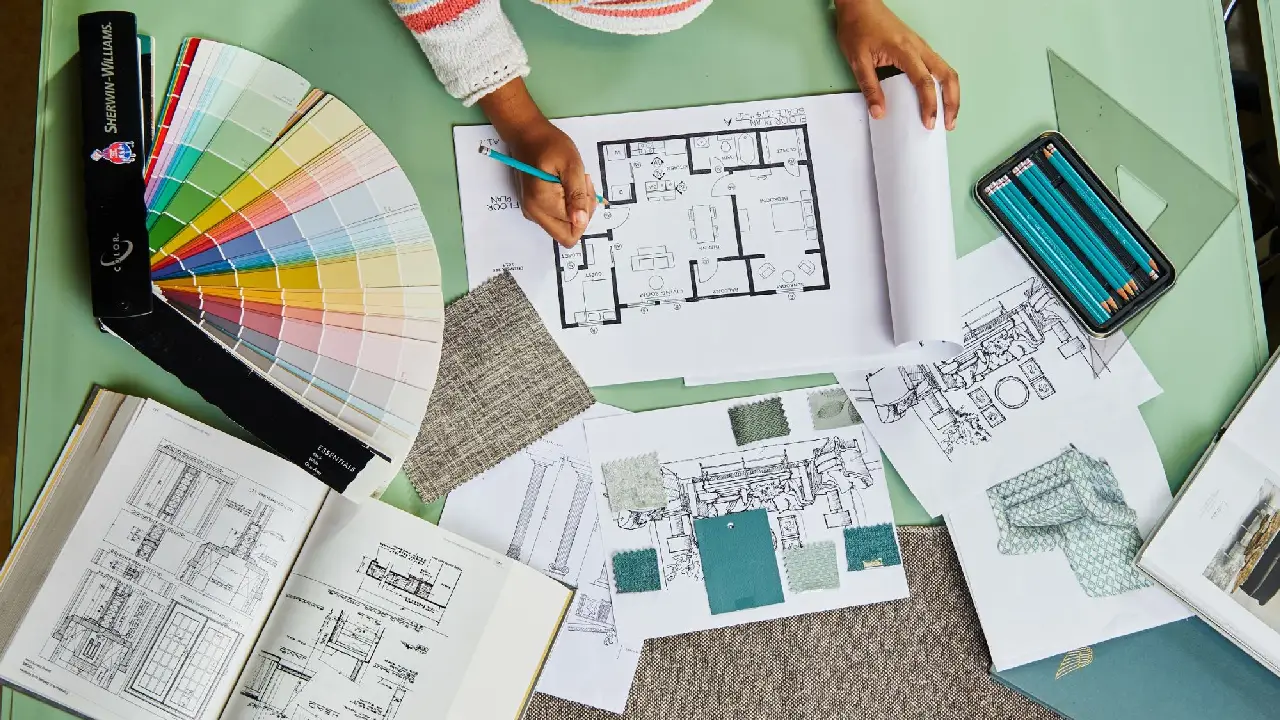Career Paths
Interior Design Diploma in Kenya and Its Job Prospects
An interior design diploma in Kenya offers a wide range of career opportunities in a rapidly expanding and evolving industry. With the demand for well-designed spaces in residential, commercial, and hospitality sectors continuing to rise, the job prospects for graduates are promising.

In recent years, interior design has emerged as a vibrant and dynamic profession in Kenya, fueled by rapid urbanization, an expanding middle class, and a growing demand for aesthetically pleasing and functional spaces. The rise of real estate development, alongside an increasing desire for well-designed residential, commercial, and public spaces, has made interior design a highly sought-after field. For those with a keen eye for design and a passion for creating functional spaces, pursuing an interior design diploma in Kenya can open doors to a rewarding and lucrative career.
The Growing Popularity of Interior Design in Kenya
Kenya’s urban landscape is undergoing significant transformation. Cities like Nairobi, Mombasa, Kisumu, and Nakuru are experiencing a building boom, driven by rapid population growth, infrastructure development, and increased investment in both residential and commercial properties. From luxury homes and hotels to offices, restaurants, and retail spaces, the demand for interior designers who can create aesthetically pleasing, functional, and sustainable environments has never been higher.
The growing interest in interior design is also being driven by a rising middle class with greater disposable income, as well as a growing awareness of the importance of well-designed living and working spaces. Homeowners, business owners, and even public institutions are becoming more invested in creating spaces that are not only visually appealing but also enhance the comfort, functionality, and overall experience of the people who use them. Interior designers are seen as key players in turning these ideas into reality.
What Is an Interior Design Diploma?
An interior design diploma is a qualification that equips students with the skills and knowledge needed to design functional and aesthetically appealing indoor spaces. It typically involves a blend of theory and practical application, covering areas such as:
- Design principles and theory: Understanding the basics of design, color theory, space planning, and the relationship between form and function.
- Materials and finishes: Learning about various building materials, finishes, textures, and their application in interior design.
- Furniture design and layout: Understanding how furniture choices, layouts, and placement impact the functionality and aesthetics of a space.
- Lighting design: Learning the principles of lighting and how to use natural and artificial light effectively.
- CAD (Computer-Aided Design) and 3D Modeling: Gaining proficiency in design software such as AutoCAD, SketchUp, and Revit, which are essential tools for modern interior designers.
- Sustainability in interior design: Understanding the importance of environmentally friendly design practices, including the use of sustainable materials and energy-efficient solutions.
- Project management: Learning how to manage design projects, from the conceptual phase through to execution and client relations.
Interior design diploma programs in Kenya typically take 2-3 years to complete and are offered by various institutions, including universities, technical colleges, and design schools. Some of the most reputable institutions offering interior design courses include the University of Nairobi, Kenyatta University, The Nairobi Institute of Technology, and The Technical University of Kenya. These programs are designed to provide students with both the theoretical knowledge and the hands-on experience required to succeed in the competitive interior design industry.
Job Prospects for Interior Design Graduates in Kenya
As interior design continues to grow in popularity, the job prospects for graduates with a diploma in interior design are promising. There are numerous opportunities in both the private and public sectors, across various industries including residential, commercial, hospitality, and institutional design. Below are some of the key career opportunities available to interior design graduates in Kenya:
1. Residential Interior Designer
One of the most common career paths for interior design graduates is working as a residential interior designer. Residential interior designers are responsible for designing private homes, apartments, and other personal spaces. They collaborate with clients to understand their style preferences, needs, and functional requirements, and then create designs that transform these spaces into beautiful and functional living environments.
With the growing real estate market and the rise in demand for luxury and modern homes, this area of interior design is thriving. Designers in this field can work independently or join established design firms that specialize in high-end residential projects.
2. Commercial Interior Designer
Commercial interior design is another lucrative field, with designers working on offices, retail spaces, showrooms, and other business environments. In this role, interior designers focus on creating spaces that are both functional and visually appealing, helping businesses to create a positive and productive environment for employees and customers alike.
As businesses in Kenya continue to expand, especially in sectors like finance, technology, hospitality, and retail, there is a growing demand for commercial interior designers. The rise of co-working spaces and modern office designs is also contributing to the increasing demand for skilled designers who can cater to these new trends.
3. Hospitality Interior Designer
Kenya is known for its thriving tourism and hospitality industry, with numerous hotels, resorts, restaurants, and entertainment venues across the country. As the sector continues to expand, so does the need for hospitality interior designers who can create welcoming and attractive spaces for guests.
From designing hotel lobbies and guest rooms to creating stylish restaurant interiors and event spaces, hospitality interior designers play a crucial role in enhancing the guest experience. Designers in this field need to consider not only aesthetics but also functionality, comfort, and the cultural context of the region they are working in.
4. Set Designer
Set design involves creating the physical environments for television, film, and theater productions. Set designers work closely with directors and producers to design sets that visually represent the themes and settings of a performance. This is a niche but exciting career path for interior designers, particularly for those with an interest in the entertainment industry.
With the growth of Kenya’s film and media sector, particularly through initiatives like Kenyatta University’s film production programs and various film festivals such as the Kalasha International Film & TV Awards, there is an increasing demand for talented set designers who can bring creative concepts to life.
5. Furniture Designer
Another career opportunity for interior design graduates is in furniture design. In this role, designers create custom furniture pieces that complement the overall design of a space. Whether it’s designing bespoke sofas, tables, chairs, or other elements, this is a specialized area that requires creativity and technical knowledge of materials and manufacturing techniques.
Graduates can either work independently or join furniture manufacturing companies, or they can collaborate with interior designers on large-scale projects. With Kenya’s growing furniture industry, particularly in urban areas, the demand for skilled furniture designers is on the rise.
6. Freelancing and Entrepreneurship
The entrepreneurial spirit in Kenya is strong, and many interior design graduates choose to go freelance or start their own interior design firms. Freelancers typically work on a project-by-project basis and have the flexibility to choose the type of work they want to do. Starting a design business can also be an attractive option for those with a vision for creating their own brand.
The growth of e-commerce, social media, and online platforms provides ample opportunities for designers to market their services and connect with clients across the country. With the right skills, a solid portfolio, and good networking, freelancers can build a thriving interior design business.
Conclusion
An interior design diploma in Kenya offers a wide range of career opportunities in a rapidly expanding and evolving industry. With the demand for well-designed spaces in residential, commercial, and hospitality sectors continuing to rise, the job prospects for graduates are promising.
As the interior design profession gains recognition and prestige in Kenya, the opportunities for qualified and skilled interior designers are set to grow. However, to succeed in this field, graduates must not only possess technical knowledge and creativity but also have strong communication, project management, and business skills. By staying updated on trends, embracing technology, and continuously refining their craft, interior design graduates can build fulfilling and successful careers in this exciting and dynamic industry.










